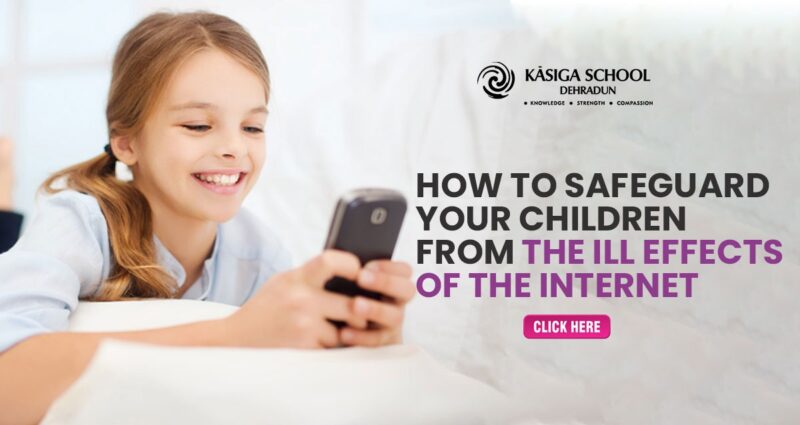Technology is unbiased. It all comes down to how you use it. And it is correct! The Internet, which was created by technology, has had its ups and downs. We’ve progressed from simple online surfing to constructing websites, making and viewing videos, and so on. While it’s beneficial that today’s children are exposed to technology at a young age, it does have a unique set of issues. One of the most important is online safety and security.
In a culture afflicted by social media and wrapped in the web of the internet, how can you keep your children safe on the internet? As educators, we frequently receive such inquiries from concerned parents, guardians, and people who do not want to expose their children to the harsh realities of the internet. Although the internet explosion greatly benefited young people and the populace as a whole, there are innumerable other parts of the internet that constitute a direct threat to a person’s online safety and security. Especially if the person in issue is a youngster with just a rudimentary understanding of how the internet works.
Before we go into how to keep your children safe on the internet, let’s address the elephant in the room. Do you believe that fully removing them from the internet is the best solution? NO! It would be stupid of us to believe that our children do not have access to the internet from sources or locations other than our houses. All this will do is pique their curiosity, which is prone to going awry.
Data breaches have become as frequent as the common cold. While there is plenty of security software available that can perform the job, some precautions may be taken by adults in the home to guarantee a well-fortified first line of defense.
So, here are some ideas and strategies to keep your children safe on the internet
Talk, Talk, and More Talk!!!
The first and most important step is to communicate with your children. Are we, as adults, having a discussion about online safety and security? Are we attempting to engage them in a conversation about the websites they visit? If not, start right now!
Statistics indicate that most parents do not talk to their children about the risks of the internet. When we say discussion, we mean it in both directions. Ordering your child not to use the internet will just encourage them to use it more. The “don’t do it” mentality will contradict the entire objective of this blog and, as a result, threaten your child’s safety. Sit them down and chat with them; ask them why they prefer to visit specific websites; teach them about spam advertisements and undesirable pop-ups that might cause problems later on.
Watch What They’re Doing
The line between monitoring and espionage is narrow. Make your youngster know that you will be monitoring their internet activities once they have finished. Examine their browser history to identify what websites they are visiting and what other activities they may be engaging in. While this may work for your younger children, it may not be the ideal choice as they become older.
Embrace Parental Controls Without Hesitating
Do not be embarrassed to use parental controls for your young children in this brash internet environment. Keep locks, use filtered searches, and limit your access to select websites. Moreover, Google features a safe search filter that aims to filter out violent and sexual content. While no one can promise a 100% favorable outcome with this method, it may certainly assist to prevent certain undesirable items from entering your online environment.
Never Approach Strangers
In your upbringing, the golden rule was “don’t talk to strangers.” Look up the same rule online. When your child understands that he or she is not supposed to talk to strangers in person, they will do the same online.
Talk to them about internet predators and the problems you can face if personal information about you is revealed. Allow them to read or have them read stories regarding internet disasters. Of course, you may exclude the upsetting parts. This is only to show them that things can and will go wrong if your personal information comes into the wrong hands.
Limit Both Use and Time Spent
The internet is a drug. Anyone who claims differently is delusory. The fast-paced animations and abundance of information provided make it an intriguing way to pass the time. What begins as 15 minutes of simple homework may quickly turn into hours spent exploring random articles and videos.
Set a restriction on how much and how long your youngster may access the internet. There are several parental controls that allow you to track usage and set time limits. Make sure they are constantly turned on and that the youngster is aware of this.
Conclusion
While there are some suggestions here that you may utilize, it’s equally critical for you as a parent to educate yourself on the risks associated with the internet. Only then will you be able to defend your child. The key here is conversation. The more you talk about it with your child, the simpler this process will be. Understand their talents and, if necessary, educate them, since this will make the monitoring process much easier for you.

